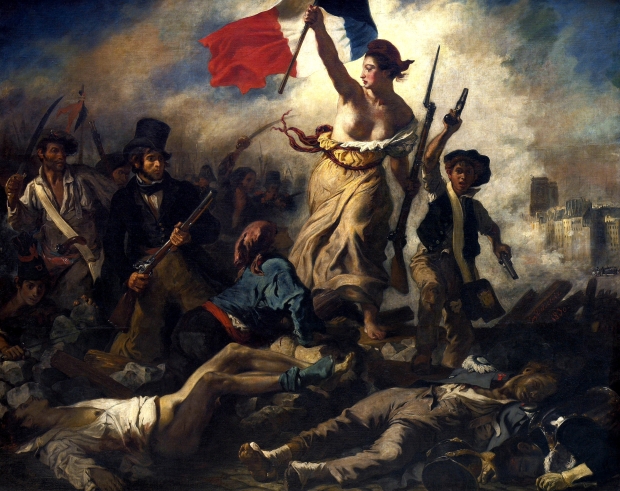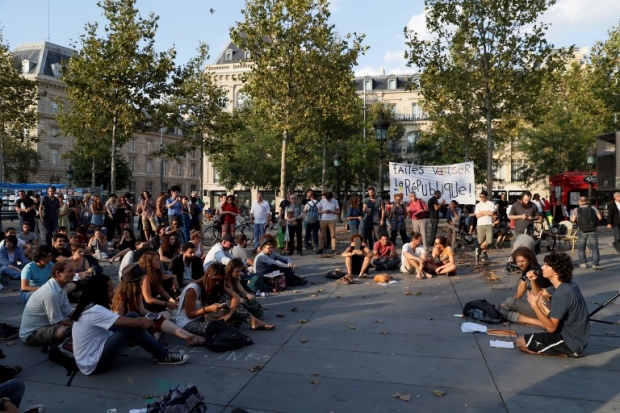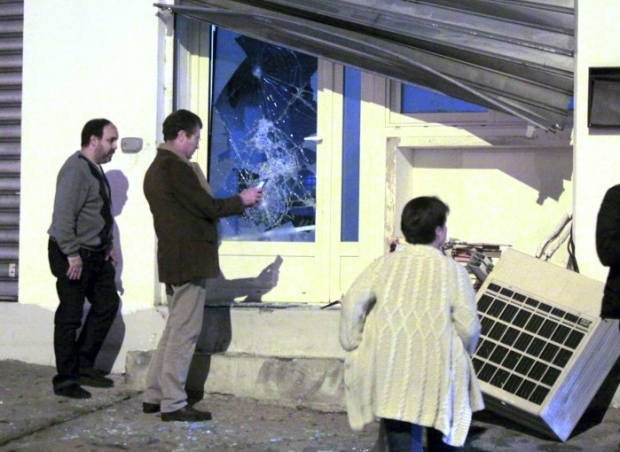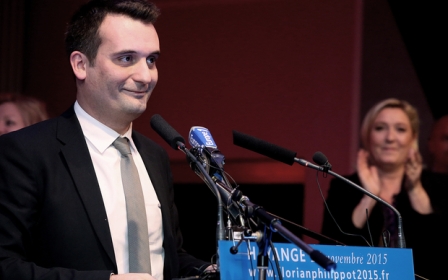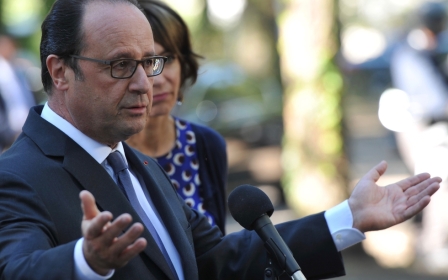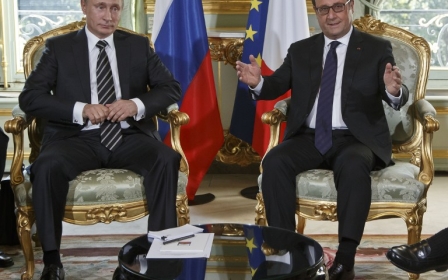A president shouldn't say that ... but Hollande did anyway
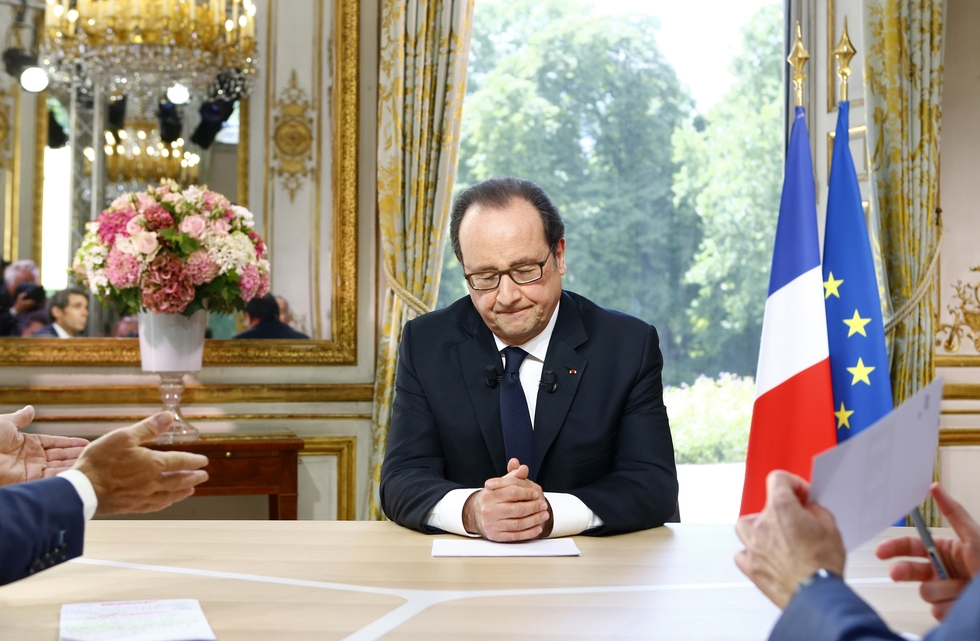
“The veiled woman will be the Marianne of tomorrow” - this is allegedly what French President Francois Hollande, the least popular French president since the 1950s, is reported to have shared with two French journalists, Fabrice Lhomme and Gérard Davet, whose book, A President Shouldn't Say That, is out this week.
The statement is an incendiary one in the French context, where Marianne, the symbol of the French republic and its ideals of “freedom, equality and fraternity”, is being married to the presumed symbol of servitude, the veiled Muslim woman.
While the burkini ban, dubbed “manifestly illegal” by the French courts, was overturned, public sentiment has largely remained favourable to it, with some mayors opting to ignore the ruling even in the face of legal action against them by human rights groups.
Hollande’s comments follow months of ongoing nationwide protests over labour laws, union strikes, and the much broader, newly emerged “nuit Debout” (up all night) movement, which has seen thousands of people gathering at night to discuss a range of social issues, driven by a general sense of public dissatisfaction.
But these have been largely eclipsed by a myopic focus on Muslim women’s attire. Again.
French Muslims under election spotlight
The book’s revelations might well be an attempt to win back some votes for Hollande, who’s so desperately low in the ratings that it is currently uncertain whether he will even stand for a second term in office. His own party opted for open primaries, the first time in more than 50 years that a sitting French president has had to vie for his party’s nomination.
Hollande’s unpopularity is now common knowledge, but the reasons for this aren’t often fully grasped
The book’s excerpts certainly hit all the right spots – his celebrity connection in the form of his actress-girlfriend Julie Gayet, immigration, and of course Islam.
Hollande’s unpopularity is now common knowledge, but the reasons for this aren’t often fully grasped. As a socialist president, Hollande pushed for measures that the French right had sought to legitimise for years, such as passing a constitutional amendment that stripped French citizenship from dual citizens convicted of terrorism (later thrown out by parliament), and labour reforms that weaken, not strengthen protections for French workers.
Yet again the upcoming presidential elections have placed the spotlight on Muslims in a country where Islam is easy political fodder from the left to the far-right. Nicolas Sarkozy recently hinted that he’d be prepared to change the French constitution to potentially seek to ban the headscarf in public spaces, not unlike the already banned face veil.
Weighing into populist discussion over further restrictions on French Muslims, centre-right Republican presidential candidate Bruno Le Maire recently said the wearing of the face veil in France needs to move from a fine to a criminal offence.
Best worse option
In a country with only around 2,500 mosques and prayer halls for a Muslim population estimated to be 4.7 million, the government has already shut down over 20 of these since December, alleging they are centres of extremism.
For the president to problematise the internationally legally enshrined right to worship is indicative of the intolerance which has come to define French public debates around Islam
Places of worship are themselves a contentious issue in "the Hexagon", where permits for new mosques are routinely withheld and the spillover from overcrowding in the few prayer spaces that do exist turns into a national debate pitting Islam against France’s quasi-religion of laicite, a very specific brand of secularism.
In the book, Hollande is quoted as saying: “It’s true there is a problem with Islam … and nobody doubts that. There’s a problem with Islam because Islam demands places (of worship), recognition. It’s not that Islam is a problem because it’s a religion that is in itself dangerous but because it wants to assert itself as a religion on the republic.”
Campaigning has yet to begin in earnest, but its outlines are already clear – Marine Le Pen was able to define the key themes of the last presidential election which saw Sarkozy and Hollande compete on National Front terrain.
This time around, a similar pattern is emerging, but with the major difference that both of France’s main parties are deeply divided – leaving the way open for the only coherent – if deeply intolerant – voice remaining.
- Myriam Francois is a Franco-British journalist, broadcaster and writer with a focus on current affairs, France and the Middle East. You can follow her on Twitter @MyriamFrancoisC
The views expressed in this article belong to the author and do not necessarily reflect the editorial policy of Middle East Eye.
Image: Photo of French President Francois Hollande (AFP)
This article is available in French on Middle East Eye French edition.
New MEE newsletter: Jerusalem Dispatch
Sign up to get the latest insights and analysis on Israel-Palestine, alongside Turkey Unpacked and other MEE newsletters
Middle East Eye delivers independent and unrivalled coverage and analysis of the Middle East, North Africa and beyond. To learn more about republishing this content and the associated fees, please fill out this form. More about MEE can be found here.



